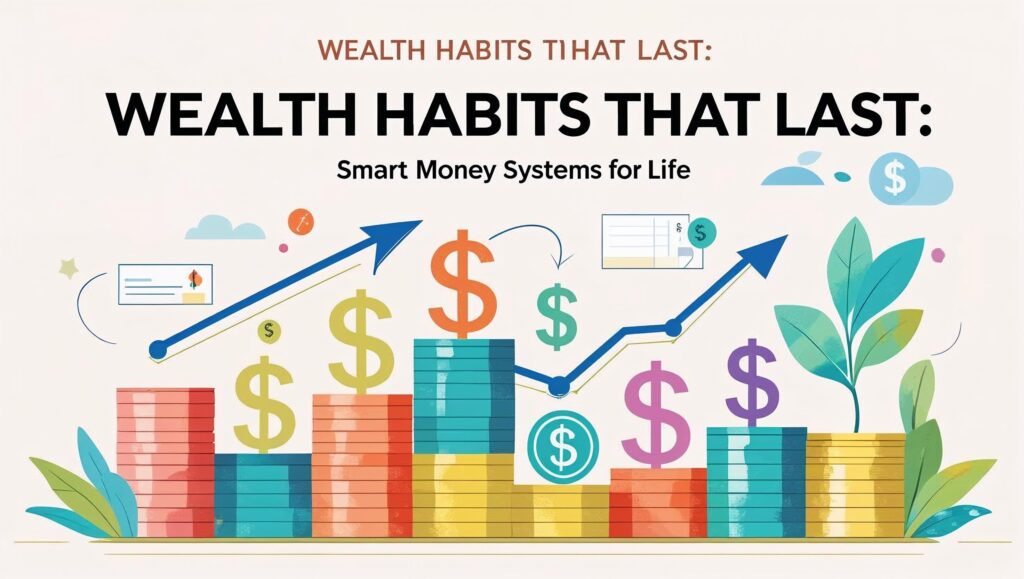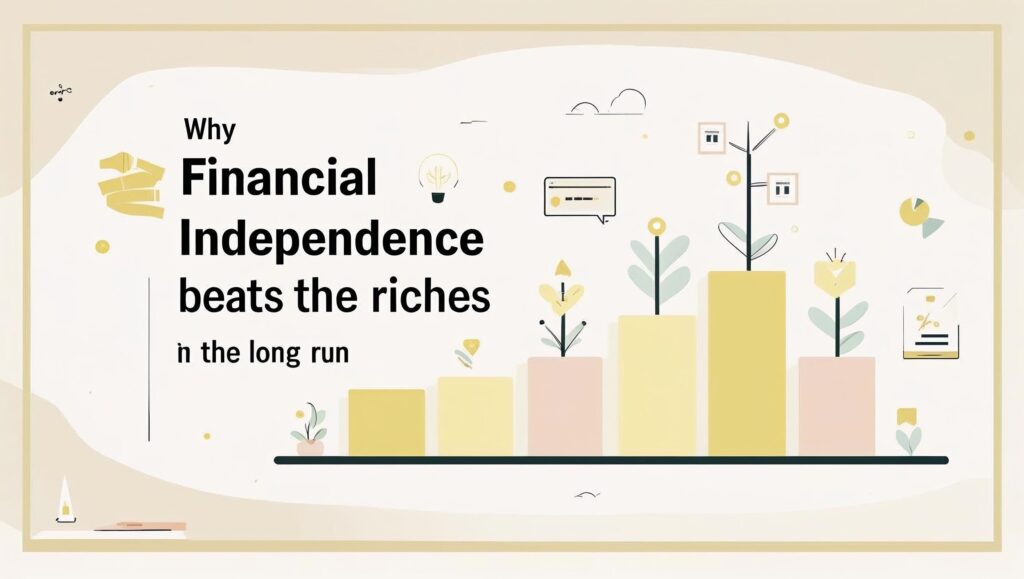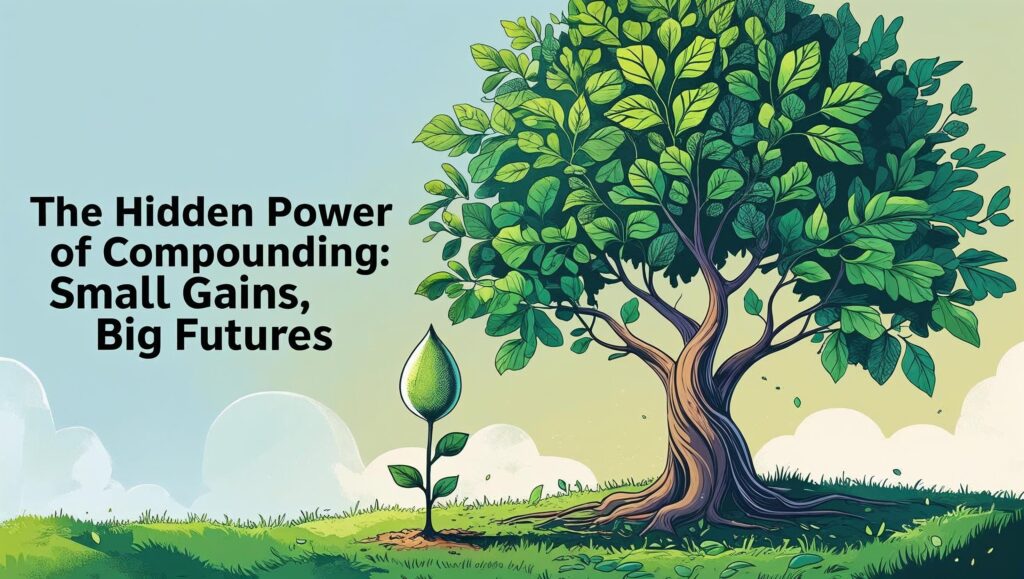
Discover timeless wealth habits for 2025 and beyond – from automating savings to building multiple income streams – that create financial freedom and lasting prosperity.
Wealth Habits That Stick: Building Lasting Prosperity Beyond 2025
Wealth is rarely the result of one lucky break, a sudden inheritance, or a single winning stock. Instead, it grows quietly through small, disciplined habits practiced daily. Across generations, the people who built enduring prosperity didn’t chase every market fad or short-term gain. They invested in systems – habits, mindsets, and choices – that compounded into freedom over time.
As we move into 2025 and beyond, one truth remains clear: money systems built on timeless principles will outlast volatility, inflation, and technological disruption. The secret is less about predicting the next boom and more about designing behaviors that stand the test of time.
This blog unpacks 10 wealth habits that anyone can adopt to create stability, resilience, and prosperity that doesn’t fade with headlines.
Why Lasting Wealth Depends on Habits, Not Just Income
Earning more money doesn’t guarantee financial freedom. High salaries, bonuses, or windfalls often vanish quickly without the right systems in place. Just think of lottery winners who lose millions within years, or celebrities who earn fortunes but die bankrupt.
On the flip side, countless modest earners quietly achieve independence by mastering money habits: tracking spending, automating savings, and resisting lifestyle creep.
The difference isn’t income, but discipline and systems.
- Income = opportunity. It opens doors.
- Habits = transformation. They turn opportunity into wealth.
- Systems = security. They sustain prosperity across decades.
The reassuring truth? Anyone can begin these habits today, regardless of where they stand financially.
Timeless Money Mindset Shifts
Wealth begins not in your bank account, but in your mindset. Here are key shifts practiced by those who build prosperity that lasts:
- Money is a tool, not a trophy. It buys freedom, security, and choices – not validation.
- Failure isn’t fatal. Smart risks sometimes fail, but failure accelerates learning and growth.
- Detach from outcomes. Focus on consistent effort, not quick rewards.
- Define success inwardly. As Warren Buffett puts it: “An inner scorecard matters more than an outer one.”
These mental shifts protect you from envy, fear, and endless comparison – the true wealth killers.
Skill Compounds Faster Than Money
The most powerful wealth engine isn’t compounding interest — it’s compounding skills. Every hour invested in learning, practicing, or sharpening your craft multiplies your long-term earning potential.
- A coder who learns AI today may double her opportunities in five years.
- A teacher who masters public speaking may transition into higher-paying consulting roles.
- An investor who studies behavioral finance avoids costly emotional mistakes.
Money compounds through interest. Skills compound by multiplying opportunities. The wealthy focus on both.
Build and Nurture Your Network
Wealth flows through people. Behind every career breakthrough, investment deal, or business venture is a network of trusted relationships.
- Cultivate mentors: Learn from those who’ve walked ahead.
- Invest in peers: Collaboration often creates opportunities faster than competition.
- Strengthen family ties: Support networks protect wealth in crises.
Wealthy individuals don’t “collect contacts.” They nurture authentic, long-term relationships that open doors and multiply opportunities.
Track What You Measure
One of the most overlooked wealth habits is simply paying attention. Money doesn’t grow in silence; it grows with awareness. Most people underestimate how much they spend and overestimate how much they save. Without tracking, blind spots creep in – and blind spots cost wealth.
Think of it this way: if you never check your health, you can’t improve it. Finances work the same way. A simple monthly review creates clarity and control. It doesn’t need to be complicated – just 10 minutes a month can change decades of outcomes.
Here’s what to track consistently:
- Income – Know exactly what’s coming in.
- Expenses – See where your money actually goes, not where you think it goes.
- Savings Rate – The percentage you keep is more important than the amount you earn.
- Net Worth – A snapshot of your financial health over time.
Management thinker Peter Drucker said it best: “What gets measured gets managed.” Tracking is not about spreadsheets and perfection – it’s about awareness and small course corrections that compound into financial independence.
Just as tracking builds awareness, pairing it with long-term investing creates peaceful wealth. Consistent contributions to mutual funds, ownership of blue-chip companies, and exposure to emerging sectors like AI stocks let compounding do its quiet work. Over decades, these investments become less about chasing quick wins and more about creating calm, reliable growth that supports a stress-free life.
When combined with other wealth habits like avoiding lifestyle inflation or automating savings, measurement and steady investing become your compass. They keep you honest, aligned, and consistently moving forward toward true financial freedom.
Multiple Streams of Income
Relying on a single paycheck is risky — jobs can vanish, industries can collapse, economies can shift. The wealthy protect themselves with multiple income streams:
- Active income: Salary, consulting, or business profits.
- Passive income: Dividends, real estate, royalties.
- Hybrid: Side hustles that begin as active and evolve into passive.
Case in point: Many investors who survived the 2008 crash had rental income or dividends cushioning them, while others relying solely on jobs struggled.
Multiple streams equal resilience.
Stay Invested and Automate Decisions
Markets rise, fall, and crash — but history shows one constant: those who stay invested win over time.
Automation is the simplest wealth hack:
- Auto-transfer savings after payday.
- Auto-invest in index funds or retirement accounts.
- Auto-increase contributions with raises.
This removes emotional decision-making and harnesses consistency – the silent driver of compounding.
Avoid Lifestyle Inflation
As income rises, most people upgrade cars, homes, and lifestyles. This creates a cycle: higher earnings → higher expenses → no freedom.
The wealthy resist. Instead of chasing bigger lifestyles, they let income growth widen their gap between earnings and expenses.
Key practice: Increase savings rate faster than lifestyle. This builds independence far quicker than “keeping up with the Joneses.”
Health Is Wealth
What good is money without the ability to enjoy it? Health safeguards both earning power and quality of life.
- Nutrition: Fuels energy for productivity.
- Exercise: Prevents costly medical issues.
- Sleep: Powers decision-making and focus.
The longest-lived wealth isn’t measured in dollars but in years of freedom and vitality.
Plan Ahead for Taxes
Taxes quietly erode wealth if ignored. Proactive planning keeps more money compounding for you.
- Review tax strategy yearly.
- Use retirement accounts and deductions wisely.
- Align investments with tax efficiency.
Wealthy individuals don’t wait until tax season – they optimize year-round.
Giving Back Creates Balance
Wealth without meaning feels hollow. Giving – whether through charity, education, or community projects -transforms money into legacy.
- Philanthropy creates purpose.
- Generosity builds fulfillment.
- Impact multiplies influence.
From Rockefeller to Gates, history shows that wealth shared endures longer than wealth hoarded.
Warren Buffett’s Wealth Habits
No blog on lasting wealth is complete without Buffett’s example.
- Started early: Bought his first stock at 11.
- Compounded consistently: Earned steady returns for decades.
- Lived modestly: Resisted lifestyle inflation (still lives in his 1958 Omaha home).
- Stayed invested: Never chased fads or panicked in downturns.
- Gives back: Committed over 99% of his wealth to philanthropy.
Buffett proves that habits, not brilliance, create enduring prosperity.
Final Thoughts: Wealth That Stands the Test of Time
Wealth is rarely the result of a lucky break or a quick win. The truth is simpler — and more powerful: it’s built through Smart Money Systems, consistent discipline, and habits that repeat day after day. This is why the wealthiest people in history are not necessarily those who chased fads, but those who trusted in systems that quietly compound over decades.
- Skills and networks compound faster than luck. When you learn, grow, and connect with the right people, opportunities flow naturally. Your earning power rises not from one job or one deal, but from relationships and expertise that compound like interest.
- Tracking and automation keep you consistent. It’s easy to lose focus in a noisy world, but tools like automating savings and monthly tracking bring structure. These small steps create consistency, and consistency creates resilience.
- Diversifying income builds resilience. Relying on one paycheck is fragile. Multiple income streams – whether through investments, side ventures, or passive revenue — protect you from uncertainty and accelerate the path to Financial Freedom.
- Health and generosity make wealth meaningful. Without health, wealth is hollow. Without generosity, it’s incomplete. Lasting wealth must be enjoyed and shared to create impact and balance.
These wealth habits are not about money alone; they are about creating freedom, peace of mind, and purpose. They form the foundation of lasting prosperity — the kind that endures through market cycles, life changes, and even generations.
As we move through 2025 and beyond, the people who stand out won’t be those flashing the newest cars or gadgets. Instead, they will be the quiet masters of discipline — those who practiced systems, nurtured skills, diversified wisely, and trusted the compounding power of time.
Because real wealth is not measured in what you show. It’s measured in the calm assurance that your systems, your habits, and your choices are working for you — silently building the life you want, long after the trends have passed.
Summary
- Wealth is created by systems, not windfalls.
- Skills, networks, and tracking are as vital as saving.
- Multiple income streams equal resilience.
- Consistency and automation compound over decades.
- Health and generosity turn money into meaning.
FAQ
- Why do habits matter more than income when it comes to building wealth?
Because income is just an opportunity, while habits transform it into lasting prosperity. Even modest earners who track spending, automate savings, and resist lifestyle inflation often achieve financial freedom unlike high earners who lack systems. - What does “skill compounds faster than money” mean?
It means the more you invest in learning and improving your skills, the faster your opportunities and income grow. A coder learning AI or a teacher mastering public speaking multiplies future earning power often faster than just saving money. - Why is tracking money so important?
Because what gets measured gets managed. Most people underestimate expenses and overestimate savings. A simple monthly check on income, expenses, savings rate, and net worth creates awareness and avoids blind spots that erode wealth. - How do multiple streams of income protect financial freedom?
Relying on one pay check is risky. Multiple income sources – salary, dividends, rental income, or side hustles build resilience. If one stream dries up, others keep wealth flowing and provide stability in uncertain times. - What lesson does Warren Buffett teach about lasting wealth?
Buffett proves that wealth comes from consistent habits, not quick wins. He started early, lived modestly, stayed invested through downturns, and committed most of his wealth to giving back. His life shows that discipline outlasts luck. - How can someone avoid lifestyle inflation as income rises?
By making savings grow faster than spending. Instead of upgrading houses, cars, or gadgets with every raise, channel that extra income into investments or debt repayment. Freedom grows when expenses stay steady while income climbs. - What role does health really play in wealth?
Health preserves both earning ability and quality of life. Without energy, productivity, or long-term fitness, even large amounts of money can’t be enjoyed. In simple terms: good habits in nutrition, sleep, and exercise protect both wealth and happiness. - How can ordinary people realistically create multiple income streams? Start small. A side hustle like freelancing can later evolve into passive income. Investing in index funds or dividend stocks adds another stream. Rental property or digital products create more. Over time, streams multiply and reduce dependence on one pay check.
- Why is planning taxes early so important? Because taxes quietly eat into wealth if ignored. Smart planning – like using retirement accounts, optimizing deductions, or tax-efficient investing, keeps more money compounding for you instead of going out each year.
- What does “giving back creates balance” really mean? It means money alone feels empty without purpose. Sharing wealth through charity, education, or community projects adds meaning, impact, and fulfilment. Generosity compounds into legacy, turning financial success into something far more enduring.



